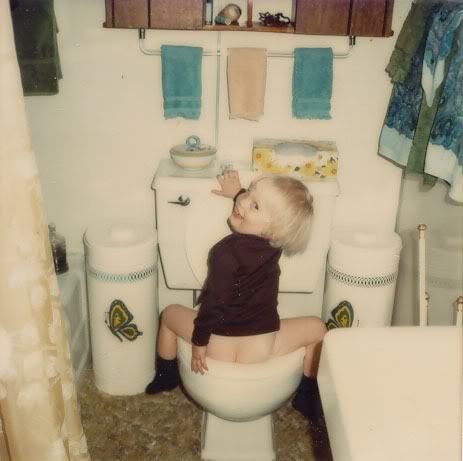Smiles abound
Just went to the talk of a woman who was almost my grad school mentor (I chose another school, lab & area). However, she's always been very friendly to me ever since and remembers me at meetings, etc. After her talk, a group of students and postdocs met her for lunch and I got to ask my favorite question of visiting scientists:
"what has been the lowest point in your scientific career?"She said she had two and explained each and how she got out of each one. Everytime I've asked a visiting speaker (and it's been about 5 times now), I get such a great and varied response. It gives me a sense of perspecitive since others have experienced similar things, yet these are all people who have pushed through whatever downturns to have success in their own labs, life, etc. There's definitely not one answer on how to get through things but most responses seem to include the following:
1. Hard work isn't everything.
2. Being social is enormously helpful in science
3. The downturns give a chance for reflection
4. Downturns are normal
In other news, Ken posted this picture today on a chatboard. Thought you'd get a kick out of it. I know it's Ken's mom's favorite picture:

4 Comments:
Great post and a great question.
You've got that right Lisa. It is one of my favorite photos! Just makes you want to pinch a cheek or four!....Ken's Mom
Lisa, Your May 31 post begs the question: what was the lowest, darkest point in your scientific career thus far?
Depends on the meaning of lowest darkest (since I haven't been in science very long).
1. Finishing my last experiment in grad school. It was twice the size of all my previous experiments done in a quarter of the time. I cried everyday for two months trying to get everything finished. It was a very stressful time, but I had an amazing support staff (Ken, family, friends & advisor) so it was definitely do-able. (Seems that work can be bad or home can be bad; I can't imagine both being terrible at the same time). Also, finishing the experiment meant I could graduate. Lights at the end of tunnels do amazing things.
2. My postdoc has been very challenging thus far (new lab, advisor, area, techniques, funding). When things work, it's incredibly rewarding and I fall in love with science over and over again; however, when things don't work it can be overwhelming. It was very hard for me to leave the things I understood in order to try something completely new. It took about a year before I didn't feel stupid all the time, everyday. (Now it's definitely often, albeit not everyday. Although if you ask me this week....).
Seriously though, this last stage has been challenging but since I'm in the thick of it, I don't have the perspective to say this is a hard time. Some of the most challenging situations for me have turned out to be the most rewarding (comprehensive exams, for example). My flailing right now could allow me to pull myself up and try something new, thereby being the turning point of my career. And plus, things aren't all bad... home life is awesome (better than in grad school) and I still have the love & support of my family and friends. On the science front, my paper just got accepted today and I received word that my collaboration with someone in a different field is a go... both great news. So for now, I'm going to have to say #1 has been the hardest but I have definitely learned a lot more in my postdoc -- both in terms of scientific technique and how to deal with adversity therein.
Sorry for the long response. L
Post a Comment
<< Home